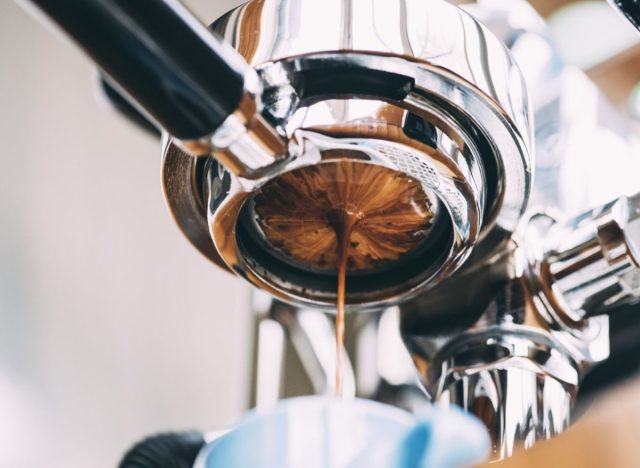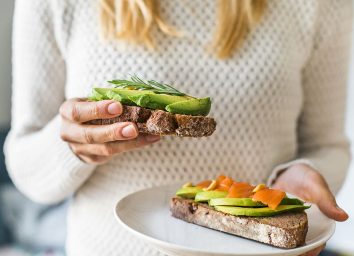What Happens To Your Liver When You Drink Coffee

You probably don't need much convincing when it comes to the benefits of drinking coffee. Not only is it delicious, but it can provide you with a necessary energy boost in the morning or during a sleepy afternoon, and it has even been known to lower your risk of heart disease and diabetes. What some people may not realize, though, is that coffee can also improve your liver health.
Research has continually shown that coffee can have a hepatoprotective effect, which means it can help to protect your liver from damage. This is the opposite of alcohol, for example, which can lead to hepatotoxicity (liver damage) if consumed too frequently.
While coffee has been found to have powerful benefits for your liver health, it's important to note that many of these studies cited in this article are centered around drinking black coffee. This does not mean that you have to give up cream and sugar forever by any means, but keep in mind that what you add to your coffee may impact its health benefits.
Read on to learn more about what happens to your liver when you drink coffee, and for more healthy eating tips, check out Surefire Ways to Protect Your Liver.
Coffee may protect you from liver fibrosis.

Liver fibrosis is a serious issue caused by the build-up of too much scar tissue in your liver. Over time, this can impact the function of your liver, but mild stages of fibrosis can often be reversed through lifestyle changes and medications.
One study from The Journal of Hepatology discovered that drinking coffee (and tea) on a regular basis could help reduce your risk of liver fibrosis. One of the ways to test for fibrosis is by measuring the stiffness of the liver, and this study showed that coffee consumption was associated with less liver stiffness.
Coffee may help you manage liver enzyme levels.

Your liver contains enzymes that speed up certain processes in your body, like breaking down toxins, bile production, and helping to fight infections in the body. If your body produces too many of these enzymes, they may leak into the bloodstream, which could be a sign of liver disease or damage.
Research has shown that drinking coffee can lower liver enzyme concentrations, specifically in people who consume heavy amounts of alcohol. It's also been found to lower these enzymes in people who are at a higher risk of liver disease.
Coffee may reduce your risk of cirrhosis.

Liver cirrhosis is the later and more severe stage of liver scarring that was mentioned previously. Unfortunately, cirrhosis usually can't be reversed like fibrosis can, and it can lead to many serious health complications.
Fortunately, coffee consumption has been linked to helping reduce cirrhosis. More specifically, research has shown that coffee can also help reduce the risk of alcoholic cirrhosis (later stage of alcoholic liver disease), as well as reduce the risk of mortality caused by alcoholic cirrhosis.
Coffee may help reduce your risk of liver cancer and disease.

As you can see, coffee consumption can do wonders for your liver health. And according to the World Health Organization, drinking this delicious beverage might also reduce your risk of liver cancer.
Other studies have shown that it not only has the potential to reduce your risk of liver cancer, but it may be able to slow down the progression of liver disease for some people as well.








